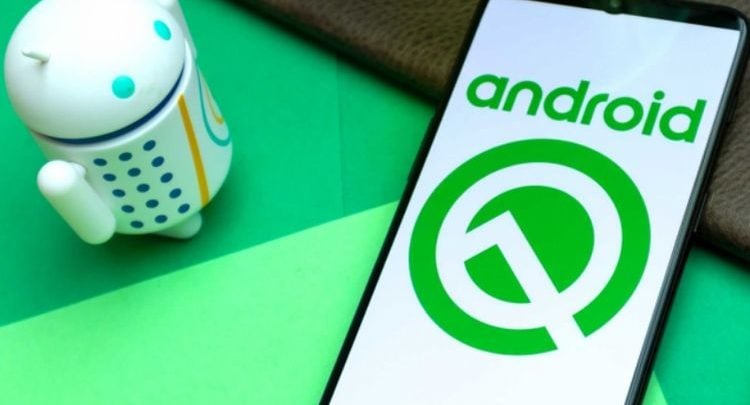TECH
 Google Android Accessibility Gets A Big Boost As AI ‘Sound Amplifier’ App Now Available On App Store
Google Android Accessibility Gets A Big Boost As AI ‘Sound Amplifier’ App Now Available On App StoreGoogle’s very own Sound Amplifier app is now available on the Android Play Store. While the app was introduced mainly in the latest stable update for the Android operating system, it is now been redeveloped for extended compatibility. Simply put, once compatible only with Android 9.0 Pie or later, the Sound Amplifier app will now work equally well on Android smartphones running Android 6.0 Marshmallow and above versions. Google has designed the app to go way beyond simple sound amplification. With an intention to help with mild or severe deafness, the Sound Amplifier app relies on Artificial Intelligence or AI to dynamically and intelligently boost only certain components of the audio to improve clarity.
The Sound Amplifier app is an attempt by Google to improve the auditory experience of Android smartphone users. The app can potentially help hundreds of millions of people around the world with mild or severe deafness. While millions of people aren’t tone-deaf, they find it exceptionally hard to decipher the various sounds and audio inputs. Merely amplifying or increasing the volume does not help clarified Android technical lead Ricardo Garcia in a blog post.
“Without clear sound, it’s challenging to connect to the people around you and fully experience the world. And simply asking others to speak louder (or turn up the TV volume) isn’t a helpful solution because people hear more clearly at different audio frequencies. Sound Amplifier is the latest step in our commitment to make audio clear and accessible for everyone. And we’ll continue to improve the app through new features that enhance sound for all types of hearing.”
What Is Sound Amplifier App And How Does It Help People With Varying Degree Of Deafness?
There are more than 466 million people in the world who suffer from deafness or hearing loss. They are unable to properly hear conversations. The severity of the hearing loss is often varying. As audio is a large part of the world around human beings, the inability to decipher between different sounds and clearly understand the words can often lead to confusion, anxiety, and other conditions which can be easily avoided. In essence, without clear sound, it’s challenging to connect to the people and fully experience the world.
Moreover, the condition is rather complex. In other words, simply increasing the volume does more harm than good. If that’s not bad enough, simply boosting the audio signals actually does not help. This is because every human speaks and listens differently. This means the words, sounds, and other audio inputs are generated and delivered at varying frequencies. Simply boosting the input is more disturbing and often confusing. Simply put, humans can clearly understand the audio signals only if they are delivered at the right frequency and intensity. This is where Google’s Ai-based Audio Amplifier app comes into play.
Sound Amplifier was announced last year at Google’s 2018 I/O developer conference. It is an Android Accessibility app that helps people hear more clearly. When installed and activated, the app listens to audio, then boosts the same in wired headphones by increasing quiet sounds while “not over-boosting loud sounds.” This might sound complex, and for an app, it is truly an amazing feat. The Sound Amplifier relies on Android’s dynamics processing effect engine to selectively pick out individual components of the sound.
How Does Google’s AI Sound Amplifier App Work?
When users plug in their headphones and use Sound Amplifier app, they can customize frequencies to augment important sound, like the voices of the people they are with, and filter out background noise. There are a few sliders and toggles that let users customize the built-in sound enhancement and noise reduction models. The eventual goal of the customization is to enhance the clarity of the sound. The app can effectively improve the critical and often hard-to-hear components of conversations. The app attempts to amplify these very bits of the conversation and helps users to have a better experience listening to audio or speaking with someone.
Interestingly, the Sound Amplifier app can help users hear conversations in noisy environments. Users can selectively boost or amplify specific frequency. In other words, users need not increase the volume of the television as this often disturbs others. Without having to listen to high volume levels, the app allows users to amplify the sound coming from the TV at personalized frequency levels. Google assures even students who have a hard time listening to the voice of lecturers or professionals trying to decipher the words of a presenter can benefit from the Sound Amplifier app.
Google claims it has designed the AI-based Sound Amplifier app using sophisticated algorithms that were derived after considering “thousands of studies and data about how people hear in different environments.” The company claims it was these studies that inspired the audio visualization feature. Google assures it will continue to improve the app through new features that enhance sound for all types of hearing. As the Google Sound Amplifier app is available to download and install like any other standard app or game on the Google Play Store, users can easily leave feedback and request additional features.
Google Pushes For Better Accessibility Apps On Play Store:
The AI-based Sound Amplifier app is a part of Google’s strong and continued push towards a better and higher number of accessibility apps on the Android Play Store. Incidentally, there are quite a few of Google’s official apps that are focused on the audio senses of smartphone users. Last year, the company debuted two apps in this very category. First one was ‘Lookout’, which provides auditory cues to visually impaired people to help them understand their environment, and ‘Voice Access’, an app that replaces touchscreen tap interactions with audio instructions.
Earlier this year, Google launched ‘Live Transcribe’, which uses a smartphone’s microphone (or external microphone) and Google Cloud Speech API to caption real-time spoken words and phrases in over 70 languages and dialects. The company is also developing ‘Parrotron’. The ongoing research initiative attempts to help people who have abnormal speech. People who have difficulty to speak or whose words that are often misunderstood should gain from the platform. Simply put, Google is attempting to help those with speech impediments. Incidentally, Parrotron too will heavily rely on AI to understand and subsequently convey the right words to listeners.
During its I/O 2019 developer conference, Google announced three separate accessibility efforts. The first one was ‘Project Euphonia’, which aims to help people with speech impairments. The second one was ‘Live Relay’, which is designed to assist deaf users, and the third was ‘Project Diva’, which gives people some independence and autonomy via Google Assistant.
Besides these projects, Google is also attempting to develop hearing aids that work with Android smartphones. These headsets have traditionally worked as standalone units. But Google is envisioning hearing aids that connect with Android devices over Bluetooth Low Energy (LE). The company’s priorities during the project are ensuring the lowest possible latency and pushing battery life. Interestingly, the Android maker also has a dedicated ‘Accessibility Scanner’. It is essentially an evaluator that checks apps and suggests ways they can be improved for visually and hearing-impaired users. Some of the most common suggestions including enlarging fonts, enhancing contrast, or making touch input target areas larger for easier execution of commands.

No comments:
Post a Comment